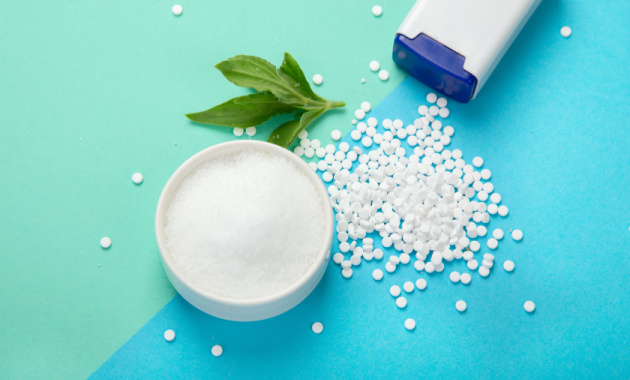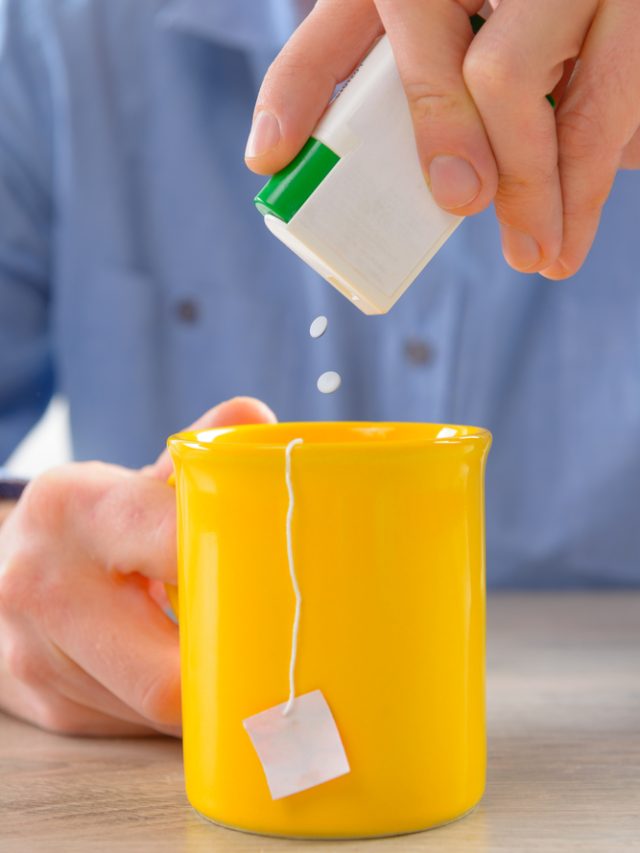
Are you tired of counting calories but still craving something sweet? Artificial sweeteners promise a guilt-free way to enjoy sweetness without the extra sugar—but are they truly safe? Let’s dive into the latest science and what it means for your health and weight goals.
Understanding Artificial Sweeteners: What’s New?
The Food and Drug Administration (FDA) has approved several artificial sweeteners. It includes aspartame, sucralose, and stevia after rigorous safety testing[1]. However, new research suggests that their effects may vary based on individual metabolism and gut health.
Latest Findings on Artificial Sweeteners & Their Impact on Health
1.Gut Microbiome Impact
A 2024 study found that some artificial sweeteners may affect gut bacteria. Examples include saccharin and sucralose. These changes in gut bacteria could impact how the body controls blood sugar [2]. Probiotic-rich foods (like yogurt and fermented foods) may help counteract these effects.
2. Heart Health Concerns
A 2024 observational study linked high consumption of aspartame and acesulfame-K to a slightly increased risk of heart disease [3]. Experts emphasize that moderation is key. Occasional use of the sweeteners is likely safe for most people.
3.Weight Management: Help or Hindrance?
While artificial sweeteners reduce calorie intake, new evidence suggests they may trick the brain into craving more sweets. This leads to overeating later [4].
Who Should Be Cautious?
- People with diabetes: Some sweeteners such as stevia, sucralose etc. may still affect insulin response.
- Those with digestive sensitivities: Sugar alcohols (like xylitol and erythritol) can cause bloating.
- Individuals with phenylketonuria (PKU): Must avoid aspartame entirely.
A Smarter Approach to Sweetness
Instead of relying solely on artificial sweeteners, try these healthier swaps:
-Natural options: Try small amounts of raw honey.
-Whole fruits: Satisfy sweet cravings with fiber-rich berries or apples.
-Mindful eating: Train your taste buds to enjoy less sweetness over time.
Start Your Weight Management Journey Today with us
Conclusion:
Artificial sweeteners can be a tool—but not a magic solution. Balance is key!
(The article is written by Dr. Lipika Khurana, Deputy Manager, Diagnostic Content , and reviewed by Dr. Sakshi Jain, Senior Manager, Clinical Health & Content)
References-
1.U.S. Food and Drug Administration (FDA). Aspartame and Other Sweeteners in Food [Internet]. FDA. 27 Feb. 2025 [Accessed 6 May. 2025]. Available from:https://www.fda.gov/food/food-additives-petitions/aspartame-and-other-sweeteners-food
2.M M, Vellapandian C. Exploring the Long-Term Effect of Artificial Sweeteners on Metabolic Health. Cureus. 2024 Sep 23;16(9):e70043. [Accessed 6 May 2025]. Available from: https://pmc.ncbi.nlm.nih.gov/articles/PMC11501561/
3.Debras C, Chazelas E, Sellem L, Porcher R, Druesne-Pecollo N, Esseddik Y, de Edelenyi FS, Agaësse C, De Sa A, Lutchia R, Fezeu LK, Julia C, Kesse-Guyot E, Allès B, Galan P, Hercberg S, Deschasaux-Tanguy M, Huybrechts I, Srour B, Touvier M. Artificial sweeteners and risk of cardiovascular diseases: results from the prospective NutriNet-Santé cohort. BMJ. 2022 Sep 7;378:e071204. [Accessed 6 May 2025]. Available from: https://pmc.ncbi.nlm.nih.gov/articles/PMC9449855/
4.Harvard Health Publication. Artificial sweeteners: sugar-free, but at what cost? [Internet]. Harvard Medical School; 2020 Jan 29 [Accessed 6 May 2025]. Available from: https://www.health.harvard.edu/blog/artificial-sweeteners-sugar-free-but-at-what-cost-201207165030
